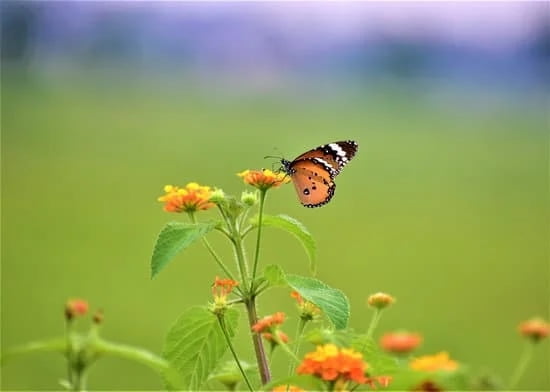Tips On Watering Vegetable Gardens
One of the most important aspects of vegetable gardening is watering. Vegetables need consistent watering to grow and produce bountiful crops. There are a few things to keep in mind when watering vegetable gardens:
1. Vegetables need about an inch of water per week. This can come from rainfall, irrigation, or a combination of the two.
2. Vegetables need water evenly throughout the week. If you only water your garden once a week, the plants will be thirsty by the time you water them. This can lead to over-watering and soggy soil.
3. Vegetables need deep watering. This means watering the soil at least 6 inches deep. If you only water the top of the soil, the water will quickly evaporate and the plants will not get the water they need.
4. Vegetables need water when the soil is dry. If the soil is wet, the water will not be able to penetrate the soil and the plants will not get the water they need.
5. Vegetables need water even when it is raining. Although rainfall can provide some water for the garden, it is not enough to meet the vegetable’s water needs.
6. Vegetables need water even when it is cold. Vegetables still need water when it is cold outside, even if they are not actively growing.
7. Vegetables need water even when it is hot. Vegetables still need water when it is hot outside, even if they are not actively growing.
Watering a vegetable garden can be a challenge, but following these tips should help you to water your garden effectively.
Florida Vegetable Gardening Tips
As a Florida resident, you are probably familiar with the intense heat and humidity that we experience during the summer months. While this weather can be challenging for some people, it actually makes gardening a little easier because the warm weather helps plants to grow quickly.
If you are new to gardening or if you are looking for tips to improve your gardening skills, keep reading for some helpful information on vegetable gardening in Florida.
Sun and Soil
One of the most important things to consider when gardening is the amount of sun and shade that your plants will receive. Most vegetables need at least six hours of sunlight per day, so make sure to choose a location that receives plenty of sun.
Another important factor to consider is the type of soil that is present in your garden. Most vegetables prefer rich, fertile soil that is well-drained. If your soil is not fertile, you can improve it by adding compost or manure.
Water
It is important to water your plants regularly, especially during the summer months. Vegetables need at least an inch of water per week, so make sure to water your plants regularly, especially if you are experiencing a drought.
Mulching
Mulching is another important gardening tip that can help to improve the quality of your soil. Mulching helps to retain moisture in the soil, which can be helpful during the hot summer months. Mulching also helps to suppress weeds, which can be a challenge in Florida gardens.
Organic or Chemical Fertilizer
Another decision you will need to make when gardening is whether to use organic or chemical fertilizers. Organic fertilizers are made from natural ingredients, such as compost, manure, or fish emulsion. Chemical fertilizers are made from synthetic ingredients and are available in liquid or granular form.
Most vegetables prefer organic fertilizers, but you may need to use a chemical fertilizer if your soil is not fertile. Be sure to read the label carefully to make sure that the fertilizer is safe for vegetables.
Pest Control
One of the biggest challenges for vegetable gardeners is dealing with pests. There are many different types of pests that can damage vegetables, including aphids, beetles, caterpillars, and slugs.
There are many different ways to deal with pests, including using organic or chemical pesticides, using traps, or using natural predators. Be sure to research the best way to deal with the specific pests that are present in your garden.
spacing
When planting vegetables, it is important to space them correctly so that they have enough room to grow. Most vegetables should be spaced about 18 inches apart. If you are planting a row of vegetables, make sure to leave at least 2 feet of space between the rows.
Companion Planting
One of the best ways to protect your vegetables from pests is to use companion planting. Companion planting is the practice of planting different types of plants together in order to benefit each other.
Some plants that work well together include basil and tomatoes, carrots and onions, and lettuce and tomatoes. Be sure to do some research to find out which plants work well together in your garden.
So there you have it – some helpful tips for vegetable gardening in Florida. Follow these tips and you will be on your way to having a successful vegetable garden.
Vegetable Gardening Tips And Tricks For Beginners
When you think of vegetable gardening, the first thing that likely comes to mind is the soil. Vegetables need fertile, well-drained soil in order to grow and produce bountiful harvests. If your soil is not in good condition, you can improve it by adding organic matter such as compost, manure, or peat moss.
Another important factor to consider when planning your vegetable garden is the sun. Most vegetables need at least six hours of direct sunlight each day in order to grow and produce fruit. If your garden is in a shady area, you may need to plant shade-tolerant vegetables such as lettuce, spinach, and broccoli.
When planting your vegetables, be sure to spacing them properly. Planting them too close together will result in competition for water, nutrients, and space. This can lead to smaller, less healthy plants. When planting, be sure to leave plenty of space between each plant in order to allow them to grow big and strong.
One of the most important things you can do to ensure a successful vegetable garden is to keep the plants well watered. Vegetables need a lot of water in order to grow, and during hot weather, they may need to be watered twice a day. A soaker hose is a great tool for watering vegetables, as it allows water to be distributed evenly and slowly over the entire plant.
If you follow these tips, you’ll be on your way to having a beautiful and bountiful vegetable garden.
Gardening Tips Vegetable
gardening is a great way to get fresh vegetables right from your own backyard. It can also be a fun and rewarding hobby. Here are a few tips to help you get started.
1. Choose the right vegetables for your climate. Not all vegetables grow well in all climates. Make sure to choose vegetables that will thrive in your climate.
2. Choose the right soil. Not all soils are created equal. Make sure to choose a soil that is suited for vegetable gardening.
3. Choose the right location. Not all locations are suitable for vegetable gardening. Make sure to choose a spot that gets plenty of sun and is well-drained.
4. Start small. It can be tempting to plant a large garden, but it is best to start small. You can always expand your garden later if you want.
5. Use the right fertilizer. Not all fertilizers are created equal. Make sure to use a fertilizer that is specifically designed for vegetable gardening.
6. Keep your garden well-maintained. Vegetable gardens require regular maintenance, including weeding, watering, and fertilizing.
7. Enjoy your garden! Vegetable gardening can be a lot of fun. Enjoy spending time in your garden and savoring the fresh vegetables you grow.
Gardening Tips Vegetable Garden
Layout
There are many things to consider when planning the layout of your vegetable garden. The first step is to figure out how much space you have to work with. Once you know that, you can start planning the specific layout of your garden.
One of the most popular layouts is the square foot garden. This layout is perfect for small spaces, and it’s easy to customize to fit your needs. You simply divide your space into square foot grids, and then plan your plants accordingly.
Another popular layout is the raised bed garden. This is a great option if you have limited space, or if you want to create a garden that’s easy to maintain. With a raised bed garden, you build a frame out of wood or other materials, and then fill it with soil. This is a great option for people who don’t have a lot of experience gardening, because the soil is already prepped and ready to go.
When planning your vegetable garden layout, be sure to consider the sun exposure and water drainage of your space. You also want to make sure that you have easy access to your garden so that you can easily harvest your crops.
Once you’ve decided on a layout, it’s time to start planting! Be sure to choose varieties of vegetables that will do well in your climate, and don’t forget to add some herbs for flavor. With a little bit of planning, you can create a beautiful and productive vegetable garden that will provide you with fresh fruits and vegetables all season long.

Welcome to my gardening blog! I am passionate about plants and enjoy sharing my knowledge and experiences with others. In this blog, I will write about everything related to gardening, from tips on how to get started to updates on my own garden projects.





